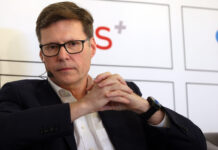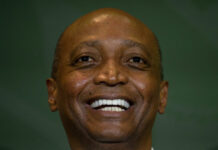
[miningmx.com] — IT TAKES a lot to knock the likes of Mark Bristow, CEO
of Randgold Resources, off his stride, but the coup d’etat in Mali – a country where
he’s positioning to invest hundreds of millions of dollars more – might give him pause
for thought.
That’s saying something. It was Randgold Resources, after all, which commissioned
its Tongon mine in Ivory Coast in the teeth of a civil war there in 2011.
Bristow knows how to play Africa and he’s dealt with a lot of ups and downs. But
Randgold Resources has set aside $1bn in investment for Mali and the Democratic
Republic of Congo over the coming years, so there’s a lot riding on political goodwill.
Bristow told Reuters the Malian people knew and respected order.
However, a political analyst in South Africa says the coup in Mali, where Randgold
Resources derives roughly 65% to 70% of its total production (and 40% of its net
asset value), is “near disastrous’.
“This was a surprise to everyone, especially as elections were due soon,’ says Claude
Baissac, who advises companies and banks on political risk.
“Every day that passes in Mali allows the junta to establish itself further.’
A junta deposed Mali President Amadou Toumani Toure on 21 March following an army
mutiny, reportedly because elements were frustrated with the government’s handling
of a Tuareg rebellion in the north of the country. The Tuaregs, who operate through
the separatist grouping MLNA, had fought in Libya where they had been supported by
that country’s former dictator, Muammar Gadaffi so, in a sense, Mali’s problems are an
extension of North Africa’s discontent.
That apart, the events in Mali come at a complete surprise.
For the time being, distance is the friend of mining companies operating in Mali.
Randgold’s Morila mine, in which it’s in joint venture with AngloGold Ashanti, is some
350 km from Bamako, the Malian capital where the junta presides. Gold Fields’
exploration project, the Yanfolila project, is even further at 600 km.
All three companies are saying operations have been unaffected, although Gold Fields
took the step of suspending further drilling.
“Mali is a country where we thought it was safe to invest, or where we thought we
could invest,’ says Nick Holland, CEO of Gold Fields. “The country is well endowed.
But given the events, we’ve suspended drilling; more importantly, our first priority is
the protection of our people. If the situation deteriorates, we have a plan to get our
people out,’ he says.
Holland says he’s had no contact with the junta; the same is true of AngloGold, which
has a watching brief over its operations. The distance does help in the short term.
The rumblings following the interim government in the Democratic Republic of Congo,
and even the recent disruption following the reelection of President Joseph Kabila
didn’t interrupt the running of the copper and cobalt mines in the southern Katanga
province.
Samir Gadio, an analyst for Standard Bank, says it’s unlikely the new authorities in
Mali would seek to substantially existing mining contracts based on the view they
don’t have a political or ideological agenda.
“In this context, the sell-off in the Randgold stock [it was down 14% on 22 March]
may represent a buying opportunity.’
– These articles first appeared in Finweek. If you want to subscribe to the digital
format of Finweek visit www.zinio.com.










